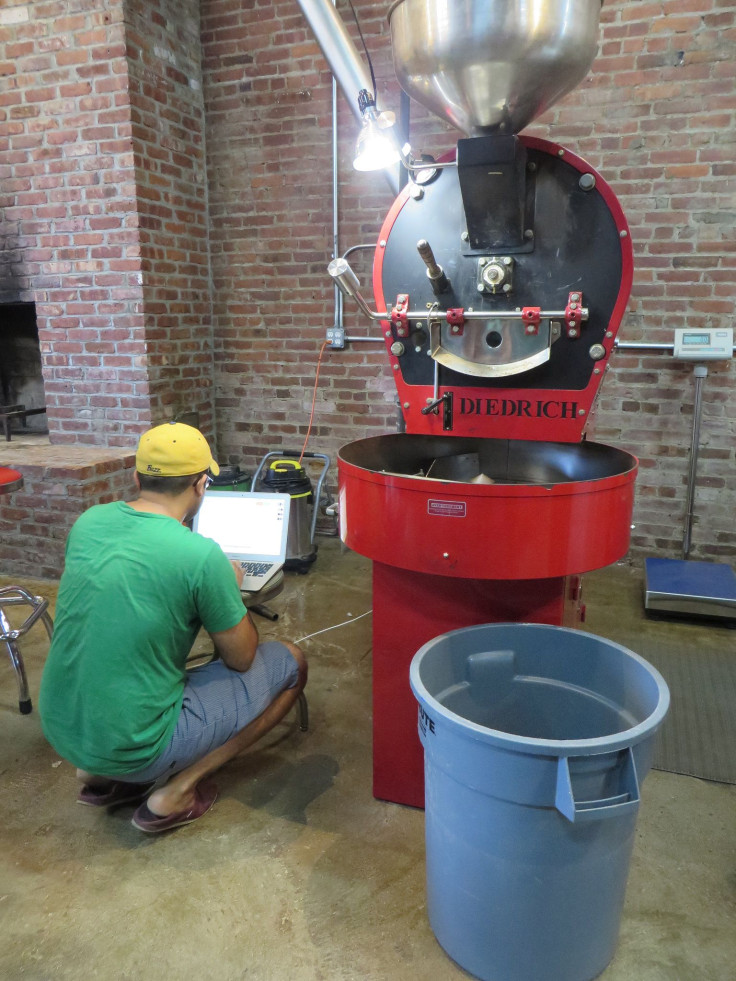Meet Oscar, The Health Insurance Startup That Wants To Revolutionize Healthcare

Growing up in India, Suyog Mody was always one call away from a doctor. When Mody wasn’t feeling well, his parents would run his symptoms by his aunt or uncle, who are both physicians. If a prescription was needed, they would call the local pharmacy.
These days, Mody, 32, and his wife live in Brooklyn, New York, where he no longer has a doctor in the family who lives nearby. But now, he says he has something almost as good: free, unlimited telephone access to on-demand doctors through his health insurer’s telemedicine benefit.
After Mody quit his job last year to work with his wife full time on their coffee delivery business, Drift Away Coffee, he turned to the New York State of Health Marketplace to find a health insurance plan. Ultimately, the couple chose Oscar, a New York healthcare startup that is popular among millennials.
Last month, during a busy week at work, Mody felt a cold coming on. Taking time to visit the doctor was out of the question. Instead he used the Oscar's mobile app to request a call from the teledoctor service. Five minutes later he had a prescription for an antibiotic and within a couple of days was back to normal.
“If I had to go to a doctor, I may have to just sit and wait, which takes so much more time,” he said. “This way is more seamless and on my terms as opposed to someone else’s time and schedule.”

Taking a page from companies like Uber and Warby Parker, which use technology to enhance the customer experience, Oscar could be a model for how the industry evolves. Its services appeal to a younger crowd that values efficiency and good design. The company offers a unique set of benefits, ranging from free telemedicine and primary care visits to no-cost generic prescriptions and reimbursement for healthy lifestyle choices. Founded in 2013, Oscar has raised $327.5 million from the likes of Google Capital and Goldman Sachs. With more than 40,000 members across New York and New Jersey, the company recently expanded its coverage to select cities in California and Texas.
Cynthia Cox, associate director of the program for the study of health reform and private insurance at the Kaiser Family Foundation, said attracting young members is especially important since enrollment in the health insurance exchanges hasn’t been as strong as expected.
“There’s some concern that if the exchanges don’t pick up more people who are young and healthy, then the costs may not be sustainable,” Cox said. “In order to keep premiums low there have to be young and healthy people paying into the pot.”
In general, health insurers do not have many happy customers. As an industry, they are tied for second to last place on the American Customer Satisfaction Index, alongside the U.S. Postal Service and landline telephone service providers. Airlines, banks, and shipping companies all outperform health insurance companies in terms of customer service satisfaction. In fact, the only industries that fare worse are internet and cable television providers.
Still, healthcare is not optional in the U.S. since enactment of the Affordable Care Act, which was signed into law in 2010. The number of Americans who have health insurance is higher than ever, with more than 90 percent paying for coverage. Those who choose not to sign up face a steep penalty, which is expected to average $1,000 in 2016, Kaiser Family Foundation research shows.
Having health insurance doesn’t mean accessing care is easy or enjoyable. For the vast majority of Americans, visiting a doctor, managing the bills, and evaluating the quality of providers is difficult. Adding insult to injury, Americans pay more for healthcare than any other developed country.
“In the U.S., for every single dollar that gets spent in our economy, 17.5 cents of that is going towards healthcare. In other countries, it’s more like a dime of every dollar goes to healthcare,” Cox said.
Companies like Oscar may eventually make healthcare pricing better for consumers and doctors alike. “The evidence historically has shown that competition in the insurance industry lowers health insurance premiums and actually increases the amount that providers get paid,” said Michael Chernew, the Leonard D. Schaeffer professor of healthcare policy at Harvard University.
Health insurers reimburse medical providers differently based on what they are able to negotiate. Companies view this as their competitive advantage and as a result are reluctant to be transparent about pricing. Oscar bucks this trend, offering an easy search tool accessible online and through its app, so customers can plan ahead for healthcare expenses.
Despite spending trillions of dollars on healthcare, Americans have higher rates of disease and mortality than other comparable countries. This is caused by many factors, but it’s clear that finding ways to encourage healthier choices would improve the quality of life for many Americans.
“There’s a lot of focus on what technology can do to help consumers and innovative ways to design insurance plans,” Cox said. “It might make sense for someone not to have a copayment or even to be paid to take their medicine regularly or to do preventative services. That can save money and their health in the long run,” she adds.
Oscar is the first health insurance company to offer a direct monetary reward to members who maintain a healthy lifestyle. Misfit wearable fitness devices are sent to members over the age of 18 who request one, and those that meet their daily fitness goal can earn up to $20 every month through Amazon gift cards, a benefit that Mody finds particularly clever.
“They’re basically ensuring that you get a little bit of exercise, which means that you might be a little bit more healthy which might mean that you’re using your insurance less,” he said. “With me and my wife it’s going to get competitive.”

One of Oscar’s downsides: The company lacks the robust network of doctors that its traditional competitors boast. And its premiums aren’t exactly cheap. In New York, Oscar’s marketplace silver plan costs $467 a month with a $2,000 deductible, which is 27 percent more expensive than a comparable plan from MetroPlus, another insurer.
Mody admits the deductible is high compared to his previous coverage, but so far it hasn’t made a difference. He says he and his wife rarely visit the doctor although they regularly take advantage of the free services offered by Oscar.
For now, customers like Mody are happy with Oscar, but the company’s long-term viability depends on whether it can maintain growth. Chernew said Oscar will need to achieve scale and market power to truly effect change.
“I like the idea of companies coming in and trying to push the system, but it’s not at all clear that they are going to be able to succeed,” he said. “So far Oscar hasn’t made a lot of money. Maybe that’s perfectly fine given their business plan. Oscar has a lot of backing so they can probably weather some of this storm, but that doesn’t mean they’re necessarily going to be successful.”
© Copyright IBTimes 2024. All rights reserved.





















